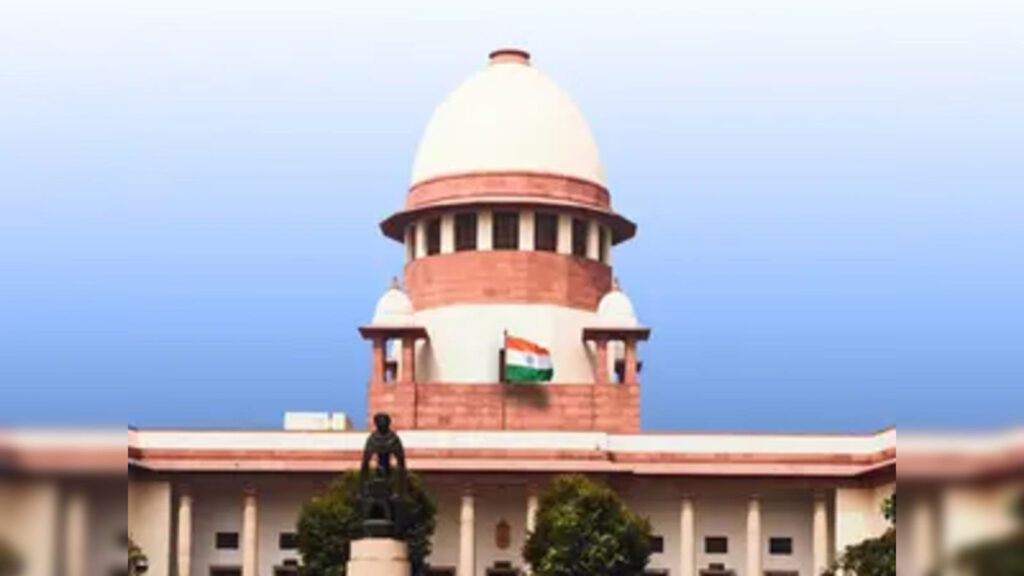The Supreme Court has upheld the constitutional validity of arrest and prosecution provisions under the Goods and Services Tax Act and the Customs Act, while introducing vital safeguards to prevent misuse of these provisions, including arrest. The landmark ruling on Thursday is expected to reshape the landscape of tax enforcement, offering a balance between stringent measures and protections against potential abuses of power.
The verdict came after a detailed examination of the provisions within both acts, which have long been controversial due to their potential for misuse. The core issue was whether these provisions, particularly the power to arrest individuals without a formal charge or conviction, were constitutional. In a carefully reasoned judgment, the Court recognised the need for robust enforcement mechanisms in the battle against tax evasion, while acknowledging the risk of overreach.
This ruling has been hailed as a significant move in addressing the growing concerns over “tax terrorism,” a term often used to describe the oppressive use of tax laws by authorities. Over the years, businesses and individuals have complained about excessive harassment under the current tax regime, particularly through unwarranted arrests. In response, the Supreme Court’s decision introduces several procedural safeguards aimed at curbing potential misuse.
Among the most notable measures is the requirement for a senior officer’s approval before any arrest is made under both the GST and Customs Acts. This step is designed to ensure that arrest powers are exercised judiciously, with a high level of scrutiny before any individual’s liberty is affected. Additionally, the Court has insisted on proper documentation of the reasons for arrest, which must be subject to review within a specified timeframe.
The ruling also emphasised the necessity of a fair process before the application of such powers, ensuring that individuals cannot be arbitrarily detained without a clear justification. This has been a longstanding demand from legal experts and industry associations, who argue that businesses are often exposed to undue pressure, resulting in unnecessary legal battles and prolonged detentions.
Legal practitioners are already calling the judgment a game-changer for tax law enforcement in India. Experts argue that while the ruling strengthens the government’s hand in its fight against tax fraud, it simultaneously introduces crucial checks and balances to prevent the abuse of power. The decision is also seen as a step towards improving the credibility of the tax administration system, which will now be required to follow more transparent and accountable processes when exercising powers of arrest.
The case involved a petition by several entities challenging the provisions under the GST and Customs Acts, which they argued were overly broad and open to misuse. They pointed to instances where tax officers had used these powers to harass businesses, with arrest provisions being invoked without solid evidence of wrongdoing. The petitioners contended that the existing laws created an environment of fear, deterring businesses from operating freely or engaging in disputes with tax authorities.
The Supreme Court’s judgment also addresses concerns raised about the lack of judicial oversight in the use of such powerful provisions. The Court, while endorsing the use of these provisions, underlined the need for a more robust oversight mechanism to ensure that they are used appropriately. It has suggested that the government review existing procedures to enhance transparency and accountability in how tax-related arrests are carried out.
While the decision has largely been welcomed by legal experts, there are some who argue that the safeguards introduced might slow down the enforcement process and create additional bureaucratic hurdles for tax authorities. They contend that in some cases, delays in approval for arrest could lead to evasion of taxes by those who may be involved in serious financial crimes. However, others believe that the balance struck between effective tax enforcement and the protection of individual rights will ultimately serve the country’s interests in the long run.
This ruling comes amid broader reforms aimed at simplifying tax laws and improving the ease of doing business. The government has been under pressure to address concerns over the application of complex tax laws that often result in prolonged disputes and unnecessary legal challenges. The Supreme Court’s judgment, experts argue, will act as a deterrent to the excessive and arbitrary use of arrest powers while still allowing the state to tackle serious instances of tax fraud.
The judgment also arrives at a time when India is continuing its efforts to combat corruption and improve governance, with the GST and Customs Acts playing pivotal roles in these endeavours. Tax evasion and corruption remain key areas of focus for policymakers, with the government seeking to expand its tax base while ensuring that tax laws are enforced fairly and transparently.




 SEBI Issues Regulatory Framework For SIFs
SEBI Issues Regulatory Framework For SIFs 